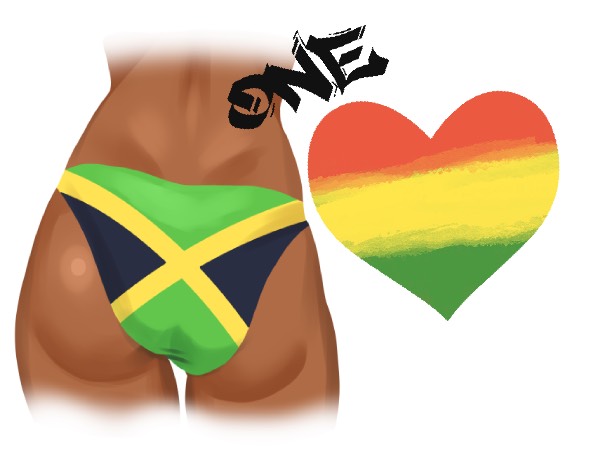When being introduced to a new culture and or language, we tend to learn the curse words first, and Jamaican Patois is no different. I am often asked, “what does this mean?” whenever Jamaican curse words appear in the international media. To be honest, I don’t believe that many are aware or use Jamaican expletives to specifically mean something, other than with the intention to inflict pain. For example, Bomboclaat is a popular 2020 meme — a meme is a concept or behavior that spreads from person to person — and the meaning is depicted by the image being used. This has become a very trendy word reference. The origin of a specific word can provide meaning and give an indication of how it can be used in sentences. It’s a reflection of the poetic dichotomy of the use of patois in language and its innate use in life. For example, for me, “go suck you mothda” is by far one of the most powerful curse words. It depicts infantile immaturity as it directs another to engage in a natural act. This act, however, is something that one wouldn’t partake in past, on average, the age of one. Not to mention the fact that you just don’t speak disparagingly of another’s mother. This hits at the very core of disgrace. I purposely left Jamaican curse words out of the Jamoji App. I didn’t want to focus or contribute to misguided stereotypes. While Jamoji’s intent is not to replicate universal emoji images, but rather establish what is missing, there is a fine line between what is family friendly, authentic and culturally accepted.
Though widely used and heard, cursing is still very much taboo in Jamaica. It’s mostly acceptable amongst friends, but even then I would avoid doing it, if possible. Not to sound prudish, but there is a certain perception attached to using bad words, it’s equivalent to witnessing your favorite teacher smoking — the relationship is forever changed. No matter how old one is, the room goes silent when one curses and this is often followed by “sorry” or “excuse me” if an elder, a woman or one’s parents are in the room. I remember once, a TSA-like attendant at the airport threatened to bar me from flying because I’d cursed in response to her actions against me. I’d “disrespected her,” she said. I’m an adult, I was frustrated and I dropped the f-bomb. Silly me. I’d forgotten where I was — where any person with some authority was “not my equal.” I was also much younger then and still hypnotized by false truths; today I would have fought back against such a threat. The role of the church and the influence of the old British hierarchy is definitely at play — which is very ironic because I’ve yet to meet a Brit who didn’t curse “like a sailor.” I am not against tradition and or pleasantries, but I’m so over the rules of the old guard and the ghost of control that can be best described as “Simon says.” Curse words are not necessarily attractive, but one is also not unattractive for using them. Besides, is it because one is simply frustrated or is a poor communicator? If there ever is a reason not to use Jamaican curse words it’s because of its nature of vilifying women and our very being. Unfortunately, in Jamaica it is decorum that matters, not perspective or even meaning.
While I will not list all the curse words used in Jamaica, I’ll leave you with this clip of a British-Jamaican mom’s frustration with her presumably teenage son’s indiscretion and abuse of the household food supply. She uses each curse word quite eloquently and in her right, damn out-ta order.


Pingback: Bad Jamaican Accents – Jamoji